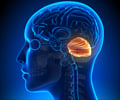A new variety of zebrafish could provide a major boost in investigating mechanisms of neurodegenerative diseases such as Alzheimer ’s disease.

Neurodegenerative diseases such as Alzheimer's, Parkinson's, ALS (amyotrophic lateral sclerosis), and MS (multiple sclerosis) are quite different in their effects on patients' cognitive and motor functions, behavior, and prognosis.
Yet on the level of individual neurons, common mechanisms can be observed that either cause or accompany nerve degeneration in a number of different diseases. One of these is a disturbance in the transport of mitochondria, organelles that play several vital roles in the life of a cell - above all, delivering energy where it is needed. And in a neuron, an extremely power-hungry cell, that means moving mitochondria all the way down its longest extension, the axon.
Studying mitochondria transport in other animal models of neurodegenerative disease, particularly in mice, has been revealing. But the MitoFish model opens up new possibilities.
The new model was jointly developed in the labs of Prof. Thomas Misgeld of the Technische Universitat Munchen (TUM) and Dr. Bettina Schmid, a senior scientist of the German Center for Neurodegenerative Diseases (DZNE) based at the institute of LMU Prof. Christian Haass.
"This collaboration has provided a system," Misgeld said, "with which we can try to understand the traffic rules or the life cycle of a given organelle, in this case mitochondria, in the context of a nerve cell that's existing in its physiological environment, where it is developing and changing. Most of these things we don't understand well enough to model them in another setting, so we have the organism do it for us."
Advertisement
It is possible to image a whole, living neuron over time and to follow the movements of mitochondria within it.
Advertisement
The researchers stress that this new window into the neurodegenerative diseases could not have been opened without combining complementary expertise: from Misgeld's lab, imaging and analysis focused on organelle dynamics; and from Schmid's lab, development of transgenic zebrafish models that are stable enough for long-term study.
The team reported described their work in the Journal of Neuroscience.
Source-ANI









